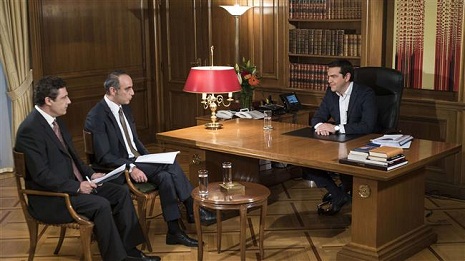The Greek banks have already closed for more than two weeks in a bid to prevent a bank run that would lead to the collapse of the country’s banking system.
After a 17-hour-long eurozone summit in the Belgian capital Brussels on Monday, the Greek prime minister finally acquiesced to a punishing ultimatum from his country’s European lenders.
Tsipras finally agreed to the passing of reforms on tax and pensions in the parliament before the end of Wednesday at the latest, and pledged to stick to severe austerity measures in exchange for receiving the third bailout of USD 96 billion (86 billion euros).
The bailout saves Greece from financial collapse, particularly from exiting the eurozone, but may cost Tsipras his job, since it has been revealed that he has agreed to more than simple austerity measures.
One of the proposals detailed in the plan agreed in the summit requires Greece to deposit 50 billion euros worth of state-owned assets into a special fund for subsequent sell-off as an assurance to its creditors for repaying its debts.
“The worst thing a captain can do while he is steering a ship during a storm, as difficult as it is, is to abandon the helm… I will not run away from my responsibilities. I am fully assuming my responsibilities, for mistakes and for oversights, and for the responsibility of signing a text that I do not believe in, but that I am obliged to implement” said Tsipras in the interview in response to his critics.
Greece received two bailout packages in 2010 and 2012, worth a total of 240 billion euros (272 billion dollars), from the creditors -- the European Commission, the International Monetary Fund (IMF) and the European Central Bank -- following the 2009 economic crisis in exchange for imposing tough austerity measures.
The country has already defaulted on a 2-billion-euro (USD 3 billion) debt payment to the IMF.
More about:
















































